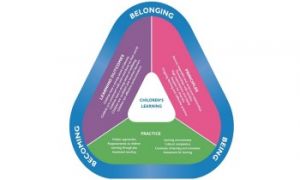Pre-writing skills are crucial for young children as they lay the foundation for future writing success. The following article provides information on What Are Pre-writing Skills, Importance Of Pre-Writing Skill Activities To Promote Pre-Writing Skills and more.
What Are Pre-Writing Skills
Pre-writing skills are the foundational abilities that children need to develop before they can learn to write effectively. These skills involve a range of physical, cognitive, and perceptual abilities. Here are some key pre-writing skills:
-
Bilateral Integration: The ability to use both sides of the body together in a coordinated way, such as using one hand to hold paper while the other hand writes.
-
Upper Extremity Strength: Strength in the arms, forearms, wrists, and hands, which is necessary for controlling a writing instrument.
-
Finger Isolation: The ability to move each finger independently, which is crucial for gripping and manipulating a pencil.
-
Object Manipulation: The ability to handle and manipulate objects with the hands, which helps in controlling writing tools.
-
Hand-Eye Coordination: The ability to perform activities that require the simultaneous use of the hands and eyes, such as tracing or drawing.
-
Crossing the Midline: The ability to move limbs across the middle of the body to the opposite side, which is important for writing across a page.
-
Visual Perception: Skills such as right and left discrimination, spatial awareness, visual memory, and understanding the position of objects in space.
-
Hand Dominance: The preference for using one hand over the other, which helps in developing consistent and efficient writing skills.
-
Hand Separation: The ability to separate the first two fingers from the last two fingers, which is important for holding a pencil correctly.
These skills are essential for developing the fine motor control, coordination, and cognitive abilities needed for writing.
Importance Of Pre-Writing Skills
By mastering pre-writing skills, children can achieve legible and efficient handwriting, which is crucial for their academic success and overall development. Here are some key reasons why they are important:
-
Fine Motor Skills: Pre-writing activities help develop the fine motor skills needed for writing. These include hand strength, dexterity, and coordination.
-
Hand-Eye Coordination: Activities like tracing, drawing, and cutting improve hand-eye coordination, which is essential for writing.
-
Cognitive Development: Pre-writing skills involve planning and organizing thoughts, which are important cognitive skills.
-
Creativity and Expression: Engaging in pre-writing activities allows children to express themselves creatively and develop their own ideas.
-
Confidence: Mastering pre-writing skills can boost a child's confidence and make the transition to actual writing smoother and less intimidating.
Activities To Promote Pre-Writing Skills
Promoting pre-writing skills in young children can be both fun and educational. Here are some activities that can help:
-
Scribbling and Drawing: Encourage children to scribble and draw freely. This helps them develop control over their hand movements.
-
Tracing Shapes and Lines: Provide worksheets with various shapes and lines for children to trace. This improves their hand-eye coordination and fine motor skills.
-
Play Dough: Playing with play dough strengthens hand muscles and improves dexterity. Children can roll, flatten, and shape the dough.
-
Lacing Beads: Stringing beads onto a lace helps develop fine motor skills and hand-eye coordination.
-
Cutting with Scissors: Supervised cutting activities with child-safe scissors can help improve hand strength and coordination.
-
Vertical Surface Activities: Activities like drawing on a chalkboard or easel can improve shoulder and arm strength.
-
Finger Painting: This allows children to explore different textures and movements, enhancing their sensory and motor skills.
-
Building Blocks: Playing with interlocking building blocks helps develop fine motor skills and spatial awareness.
-
Buttoning and Zipping: Practicing buttoning and zipping clothes can improve fine motor skills and hand-eye coordination.
-
Craft Projects: Engaging in simple craft projects that involve cutting, gluing, and assembling can enhance fine motor skills and creativity.
These activities not only help in developing pre-writing skills but also make learning enjoyable for children.
Further Reading
Pre-Writing Skills
Pre-Writing Skills Activities For Preschoolers
Developmental Stages Of A Child's Writing
Pre - Writing Worksheets







 As an Educator in Australia, your pay rate falls under the Children’s Services Award 2010. This award states the minimum amount that an employer can
As an Educator in Australia, your pay rate falls under the Children’s Services Award 2010. This award states the minimum amount that an employer can When working as a qualified Early Childhood Teacher (with a university degree) within a service, your rate of pay will come from the Educational Services
When working as a qualified Early Childhood Teacher (with a university degree) within a service, your rate of pay will come from the Educational Services When working as a Diploma Qualified Educator your pay rate is from the Children's Services Award 2010. This Award states your minimum rate of pay
When working as a Diploma Qualified Educator your pay rate is from the Children's Services Award 2010. This Award states your minimum rate of pay When working as a Cert 3 Qualified Educator, your pay rate is from the Children's Services Award 2010. This Award states your minimum rate of
When working as a Cert 3 Qualified Educator, your pay rate is from the Children's Services Award 2010. This Award states your minimum rate of Educational Leaders play a crucial role in their early childhood service by ensuring that the educational program aligns with best practices and supports the holistic
Educational Leaders play a crucial role in their early childhood service by ensuring that the educational program aligns with best practices and supports the holistic In early childhood education and care, ratios are more than a technicality—they are a frontline safeguard. Every child deserves responsive supervision, emotional connection, and developmental
In early childhood education and care, ratios are more than a technicality—they are a frontline safeguard. Every child deserves responsive supervision, emotional connection, and developmental With the new national child safety reforms kicking in on 1 September 2025, early childhood services like yours have a real opportunity to lead the
With the new national child safety reforms kicking in on 1 September 2025, early childhood services like yours have a real opportunity to lead the Here’s a comprehensive Mobile Phone and Smart Watch Policy tailored for early childhood education and care (ECEC) services in Australia, aligned with the latest 2025
Here’s a comprehensive Mobile Phone and Smart Watch Policy tailored for early childhood education and care (ECEC) services in Australia, aligned with the latest 2025 The Sea of Fish Challenge is a national initiative that invites children, educators, families, and communities to create and display fish artworks as a symbol
The Sea of Fish Challenge is a national initiative that invites children, educators, families, and communities to create and display fish artworks as a symbol Across the early childhood education and care sector, educators are sounding the alarm: current staffing ratios are insufficient to deliver safe, meaningful, and developmentally appropriate
Across the early childhood education and care sector, educators are sounding the alarm: current staffing ratios are insufficient to deliver safe, meaningful, and developmentally appropriate


